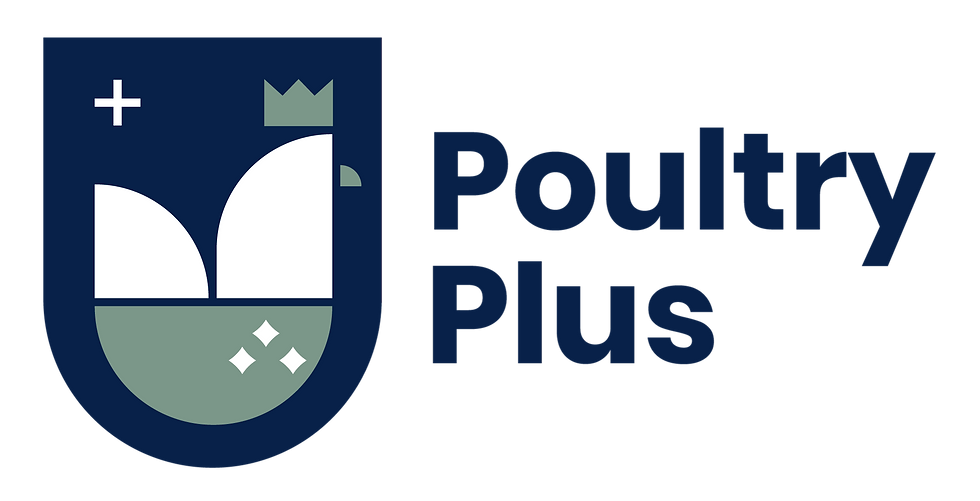Securing the Coop: Can Your Poultry Confinement Trusses be Trusted?
- ARU

- Jul 27, 2023
- 3 min read
Updated: Feb 2, 2025

When it comes to running a successful poultry farm, ensuring the safety and reliability of the infrastructure is paramount. Trusses serve as the backbone of any poultry house, supporting the weight of the roof, the weight of equipment, and ensuring the structural stability of the entire building. Over time, factors such as heavy snowfall, high winds, or even gradual deterioration due to age can weaken trusses and lead to potential disasters. Collapsing trusses not only risk the well-being of the birds but also pose significant dangers to the farm personnel.
According to the National Poultry Technology Center (NPTC) the poultry house attic is a critically important part of the house and is the most often overlooked. Tyler Guilmette Loss Control Manager at ARU added:

“Poultry house trusses are designed to carry the lightest necessary load. If any single piece of a truss is damaged, the ability to carry that load is compromised and the load is shifted to neighboring trusses. This means that during a snow or ice event, like the 2021 ice storm that hit Texas, Arkansas, and Louisiana, a single damaged truss can cause a chain reaction that leads to the collapse of an entire poultry house.”
The key to effective loss control is taking proactive measures to identify and rectify any potential issues before they escalate into major safety hazards or costly losses. That’s why the NPTC recommends that attics should be inspected regularly throughout the year as well as immediately after any major wind or snow event.
Regular inspections should be conducted by qualified professionals who are trained to identify signs of truss deterioration, such as sagging, splitting, or corrosion. Early detection can help prevent catastrophic failures and mitigate risks. Read more on practical guidelines and recommendations to keep trusses in optimal condition.

In cases where trusses exhibit signs of weakness or damage, one must first assess whether the damage can be repaired or if it must be replaced entirely. For example, roofing screws fitted with rubber washers should be used when fastening metal roof panels to wooden purlins to prevent water intrusion. While it is important that these screws are checked annually and tightened if necessary, this fix does not require a complete replacement of the roof. Conversely, any purlins that show signs of long-term water exposure should be completely removed and replaced.

If you discover damaged truss members, an engineer should be contacted to ensure they are repaired correctly. Sistering a broken truss member with a new piece of wood may not be enough - especially for king posts, top chords, and bottom chords.
While no poultry building is immune to natural wear and tear that comes with the passage of time, constant vigilance is the grower's greatest weapon in prolonging the lifespan of their poultry buildings. Even in new construction, farmers must take action to ensure their trusses are performing. Engineers should be called to inspect the trusses after they have been installed but before tri-ply is put up - this helps to ensure the installation was completed as the truss engineers intended.
By adhering to these recommended practices, poultry farmers can uphold the integrity of their trusses and mitigate potential risks associated with weakened or compromised structures. Make sure to read the NPTC’s full article, “Can Your Trusses Be Trusted?” for more repair dos and don’ts!
Stay connected with ARU on LinkedIn for updates on poultry confinement, agricultural industry trends, best practices, and expert loss control guidance.

ARU was founded to create a stable and reliable insurance market for poultry confinement. Poultry Plus is a comprehensive poultry insurance solution for the entire farm including:
Poultry Houses
Generators
Mobile Equipment
Barns/sheds
Dwellings
Liability
Loss of Income
Poultry Specialty Endorsement (Covers Avian Influenza)
Schedule a call today to learn more about our insurance coverages and see if your accounts qualify!
PLEASE NOTE THAT ARU MARKETS OUR PRODUCTS ONLY THROUGH LICENSED INSURANCE BROKERS. WE ARE NOT ABLE TO PROVIDE QUOTES OR INSURANCE GUIDANCE FOR FARM OWNERS
*Due to the ongoing outbreak, Poultry Specialty Coverage at ARU is currently unavailable for breeders, free-range, and turkeys.
Sources:
.png)
.png)
%20(2).png)



